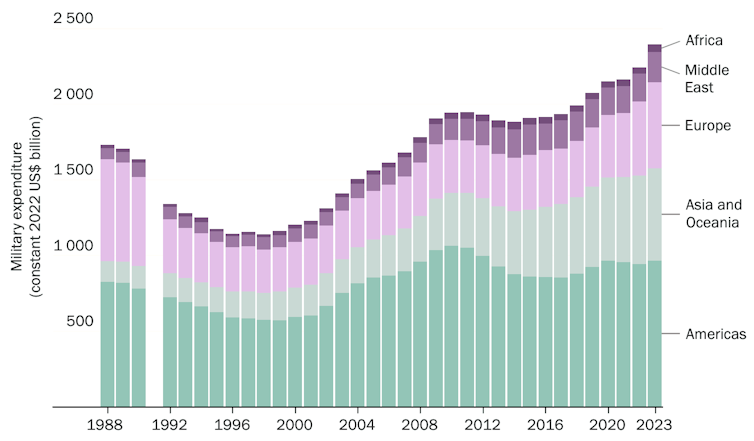‘Britain could soon lose control of its defence industry’ – expert Q&A
- Written by Keith Hartley, Emeritus Professor of Economics, University of York

Miltary spending is surging in the face of heightened geopolitical tensions. The UK plans[1] to hike its defence spending to 2.5% of GDP by 2030, amounting to £87 billion a year. This is an increase from around 2.3% today, which Prime Minister Rishi Sunak has said is necessary in an “increasingly dangerous” world.
It comes at the same time as the US has signed off on a US$95 billion (£76 billion) military aid package for Ukraine, Israel and Taiwan. Meanwhile, the once dovish Germans want[2] to become Nato’s leaders in Europe, and nations like France[3] and Sweden[4] are also pushing for increased military commitments.
We asked Keith Hartley, a defence specialist and emeritus professor of economics at the University of York, to offer his views on how defence will change in the years to come.
What will spending increases mean overall?
You’re going to see a general increase in the demand for equipment. According to the Stockholm International Peace Research Institute (Sipri), world military spending grew 7%[5] in real terms in 2023, rising for the ninth consecutive year. This looks very likely to continue, not least because it takes time to ramp up production.
Global military spend 2008-23







